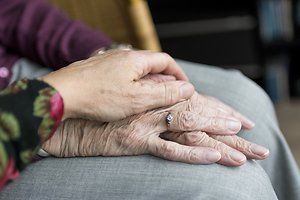Women & Reflexology
There are many issues that women may have to deal with. Some women may be dealing with stress and anxiety. They may be working, as well as running a home. It may be that they are not sleeping very well and have a poor diet. It may be that they are having difficulty conceiving and want to do all that they can to prepare their body for conception.
During pregnancy many women experience some discomforts such as morning sickness, constipation and conditions such as pelvic girdle pain.
It is important at any age to do all that we can to keep our immune system healthy. Please read the section on Reflexology Lymphatic Drainage (RLD) which has proven to be very efficient at cleansing the lymphatic system which helps us to fight infection and disease.
Menopause
Later in life some women may struggle physically or emotionally with menopausal symptoms.
So how can Reflexology help? Reflexology works by supporting the glands which release hormones into your bloodstream. When too much, or too little of these hormones are produced, we start to experience menopausal symptoms, such as hot flushes, mood changes, anxiety or depression and difficulty sleeping. Reflexology helps to balance the mind and body, and it facilitates the flow of energy through the body.
Let's not forget the elderly who may have many health problems, or may just need a gentle touch and a listening ear. We may take for granted the physical contact we have with our families and friends. For some, it could be the first time in a long time that they have felt the physical contact of another person. It's amazing how lifted a treatment can make you feel.
Living With Long Covid
With so many people feeling the long term effects after having Covid-19, many are asking what they can do for themselves.
The symptoms of long covid are vast, but the most common symptoms reported include fatigue, headaches, anxiety and insomnia. Other symptoms may include, tachycardia (fast heart rate), hair loss, tinnitus and brain fog.
DO'S & DONT'S
Do
- Rest as much as possible
- Stay positive
- Focus on the good days, not the bad
- Pace yourself
- Take one day at a time
- Be realistic about what you're able to do each day
- Try to get a good nights sleep
- Eat a healthy diet
- Avoid or reduce caffeine and alcohol
- Practice mindfulness/meditation
- Seek out a complementary therapy
Don't
- Don't over do it
- Don't dwell on the bad days and what you didn't manage to achieve
- Don't rush your recovery. Everyone is different
- Don't expect everyone to understand what you're going through - especially if 'you don't look ill'
Everyone is different and the effects of Long Covid seem to affect different people in different ways. Sometimes it appears as though the virus affects our weak spots the most.
Rest is one of the most important things you can do for yourself. When we are resting, our body has the best opportunity to renew and repair. If we are constantly on the go and not getting enough sleep, the body is being deprived of the best opportunity to heal. I know taking time to rest can be easier said than done. This is where it's important to prioritise what you need to do, and accept that some things will just have to wait until you are feeling better. Maybe you can delegate some jobs to other household members and not feel as though you have to do it all yourself. Some people with Long Covid may not necessarily look ill, but you need to explain to those closest how you are feeling, that you need support and that it hopefully wont last forever.
Try to stay positive and remember that this could be a marathon, not a sprint. Pace yourself. Focus on the good days you have had and see those days increasing with time. Don't dwell on the bad days as they may become less in the coming weeks and months. Don't set unrealistic expectations as this can lead to disappointment and low mood.
Try to plan your meals for the week ahead to ensure that you get fruit and vegetables into your diet. Reduce sugar, caffeine and alcohol. These are all toxins which your body has to eliminate. Reducing these toxins will allow your body to expend energy on healing rather than eliminating toxins.
Some people take additional supplements such as multivitamins, herbal supplements or homeopathic remedies. You might want to do your own research or consultant a professional for advice. Always check for contraindications if you are being prescribed medication by your GP.
If you have found that anxiety has become as issue, it may be worth practising mindfulness everyday. Some people are used to doing meditation, but beginners may find it easier to follow a guided meditation. There are lots of guided meditations to be found on line. Just try a few until you find the ones that suit you. Some people can find mindfulness in repetitive activities such as colouring, doing puzzles, knitting or crafting. if you have the energy, walking mindfully can be good for the soul. Focus on your breathing and on releasing any areas of tension in your body. If your mind wanders, bring your attention back to your breathing. Use your senses. What can you see, hear, smell and feel. These are just a few suggestions but you may have ideas of your own.
If you feel that anxiety is becoming a problem, you should discuss this with your GP. If you are already taking medication, you should not stop without talking to you GP first.
Reflexology can be used on your journey to recovery.

